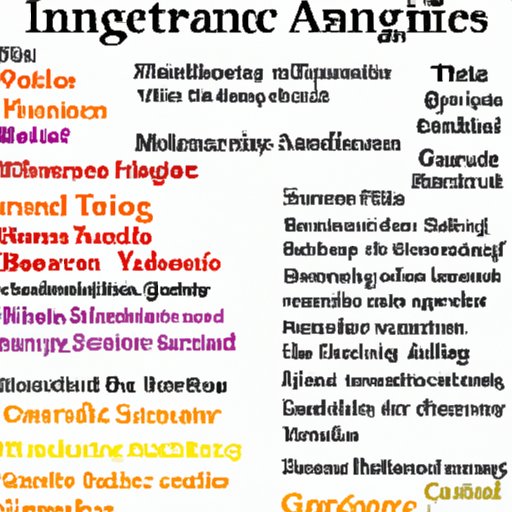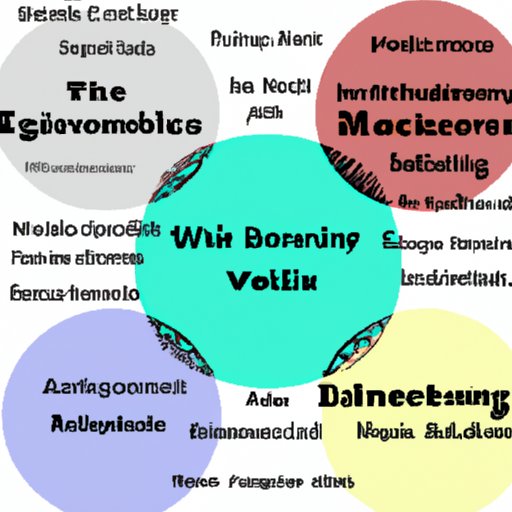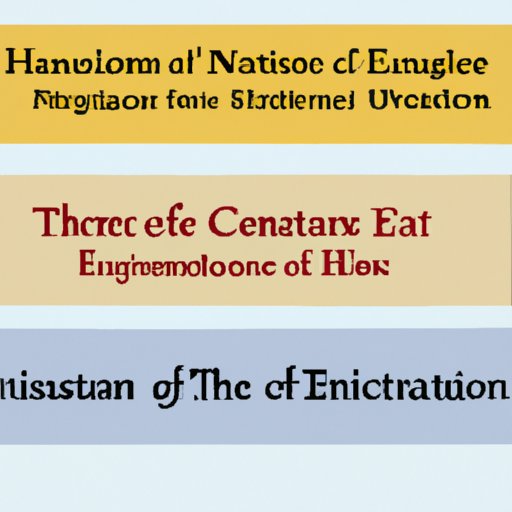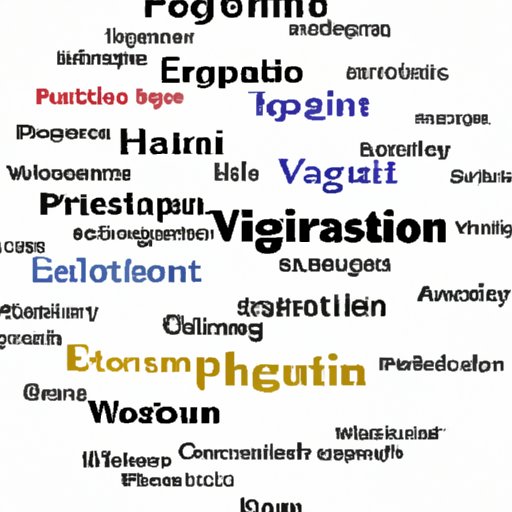Introduction
Genre is a term used to classify or describe a type or form of literature. It is often used to categorize books, plays, films, music, and other works of art. The purpose of this article is to provide an overview of genre in literature, looking at the different types of literary genres, how to identify them, and their impact on stories and readers. We will also look at the evolution of genre in literature through history.

An Overview of Genre in Literature
When discussing genre in literature, it is important to understand what genre actually is. Genre is a term that refers to the categories or types of literature. It is a way of classifying works of literature according to their common characteristics. Genre is often used to categorize books, plays, films, music, and other works of art.
There are many different types of literary genres, each with its own unique characteristics and conventions. Some of the most common genres include fiction, non-fiction, poetry, drama, and other forms of genre such as fantasy and horror. Each genre has its own set of conventions and expectations that make it distinct from other genres.

Exploring the Different Types of Literary Genres
Fiction is a type of literature that deals with made-up stories and characters. It can be divided into subgenres such as romance, science fiction, historical fiction, and fantasy. Fiction is often used to explore themes such as love, loss, morality, and justice.
Non-fiction is a type of literature that deals with facts and real people. It can be divided into subgenres such as biography, memoir, travel writing, and journalism. Non-fiction is often used to explore topics such as politics, culture, and science.
Poetry is a type of literature that uses language to create images, sounds, and feelings. Poetry can be divided into subgenres such as haiku, sonnet, and free verse. Poetry is often used to explore emotions such as love, loss, and joy.
Drama is a type of literature that involves characters and dialogue. It can be divided into subgenres such as tragedy, comedy, and melodrama. Drama is often used to explore themes such as power, relationships, and justice.
Other forms of genre include fantasy, horror, mystery, and suspense. These genres often combine elements of fiction and non-fiction to explore themes such as good vs. evil, morality, and justice.
A Guide to Understanding Genre in Literature
In order to understand how genre affects a story and its reader, it is important to understand the characteristics of each genre. Every genre has its own set of conventions and expectations that make it distinct from other genres. For example, a romance novel is expected to have a happy ending, while a horror novel is expected to be filled with suspense and terror.
It is also important to know how to identify a genre. This can be done by looking at the setting, characters, plot, and themes of a work of literature. For example, a story set in a dystopian future with an oppressive government is likely to be a science fiction novel, while a story about a family trying to survive in a post-apocalyptic world is likely to be a dystopian novel.
How Genre Affects a Story and its Reader
Genre can have a significant impact on both a story and its reader. Genre can affect the characters, plot, and themes of a story. For example, a romance novel is likely to have characters who fall in love, while a horror novel is likely to have characters who are facing some sort of danger or evil force.
Genre can also affect the way a reader perceives a story. For example, a reader of a romance novel is likely to expect a happy ending, while a reader of a horror novel may expect to be scared or shocked. In addition, genre can affect the way a reader feels after reading a story. For example, a reader of a romance novel may feel uplifted or hopeful, while a reader of a horror novel may feel anxious or scared.

The Evolution of Genre in Literature Through History
Genre in literature has evolved over time. In ancient times, genres such as epic poetry and tragedy were popular. In the Middle Ages, genres such as romance and mystery became popular. In the Renaissance, genres such as comedy and satire were popular. In the modern era, genres such as science fiction and fantasy have become popular.
Looking to the future, new genres are likely to emerge. For example, “cli-fi” (climate fiction) is becoming increasingly popular as authors explore the effects of climate change on society. It is also likely that existing genres will continue to evolve and expand, as authors explore new ways to tell stories.
Conclusion
In conclusion, genre is an important concept in literature. It is a way of classifying works of literature according to their common characteristics. There are many different types of literary genres, each with its own unique characteristics and conventions. It is important to understand the characteristics of each genre and how to identify them in order to fully appreciate a work of literature. Genre can also affect the way a story is perceived and how a reader feels after reading it. Finally, genre in literature has evolved over time and is likely to continue to do so in the future.
This article provided an overview of genre in literature, exploring the different types of literary genres, how to identify them, and their impact on stories and readers. It also looked at the evolution of genre in literature through history. Genre is an important concept in literature that can help us better understand and appreciate works of literature.
(Note: Is this article not meeting your expectations? Do you have knowledge or insights to share? Unlock new opportunities and expand your reach by joining our authors team. Click Registration to join us and share your expertise with our readers.)
